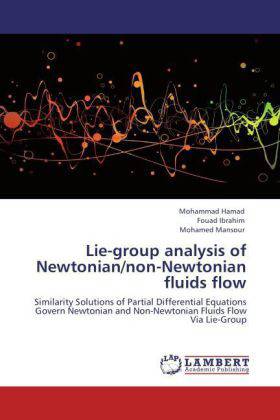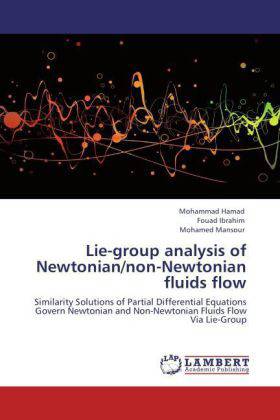
- Afhalen na 1 uur in een winkel met voorraad
- Gratis thuislevering in België vanaf € 30
- Ruim aanbod met 7 miljoen producten
- Afhalen na 1 uur in een winkel met voorraad
- Gratis thuislevering in België vanaf € 30
- Ruim aanbod met 7 miljoen producten
Zoeken
Lie-Group Analysis of Newtonian/Non-Newtonian Fluids Flow
Similarity Solutions of Partial Differential Equations Govern Newtonian and Non-Newtonian Fluids Flow Via Lie-Group
Mohammad Hamad, Fouad Ibrahim, Mohamed Mansour
Paperback | Engels
€ 77,95
+ 155 punten
Omschrijving
In this book, group methods are presented for finding the similarity solutions for some systems of partial differential equations, which govern the problems of convective flow in the boundary layer of Newtonian and non-Newtonian fluid. We will use three methods for finding the similarity representations (i) Scaling transformations, (ii) Infinitesimal Lie group analysis and (iii) Suitable similarity transformations. Lie groups, and hence their infinitesimal generators, can be naturally extended or "prolonged" to act on the space of independent variables, dependent variables and derivatives of the dependent variables up to any finite order. As a consequence, the seemingly intractable nonlinear conditions of group invariance of a given system of differential equations reduce to linear homogeneous equations determining the infinitesimal generators of the group. Since these determining equations form an over determined system of linear homogeneous partial differential equations. If a system of partial differential equations is invariant under a Lie group of point transformations, one can find, constructively, special solutions, called similarity solutions or invariant solutions.
Specificaties
Betrokkenen
- Auteur(s):
- Uitgeverij:
Inhoud
- Aantal bladzijden:
- 260
- Taal:
- Engels
Eigenschappen
- Productcode (EAN):
- 9783847321057
- Verschijningsdatum:
- 18/01/2012
- Uitvoering:
- Paperback
- Formaat:
- Trade paperback (VS)
- Afmetingen:
- 152 mm x 229 mm
- Gewicht:
- 385 g

Alleen bij Standaard Boekhandel
+ 155 punten op je klantenkaart van Standaard Boekhandel
Beoordelingen
We publiceren alleen reviews die voldoen aan de voorwaarden voor reviews. Bekijk onze voorwaarden voor reviews.











